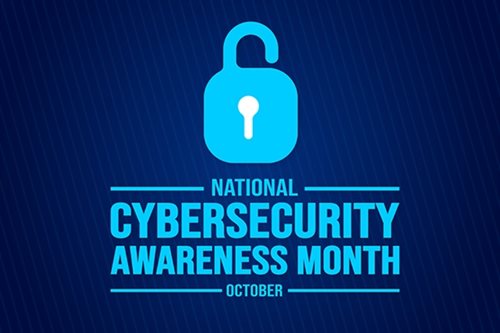
In today's increasingly digital world, where financial transactions, personal data, and sensitive information are often just a click away, the importance of cybersecurity has never been more critical.
Every October, we observe Cybersecurity Awareness Month, a time dedicated to educating and empowering individuals and organizations to enhance their online security practices.
At Credit Union One, the safety and security of our valued customers are paramount, which is why we're here to provide essential insights and guidance to help you navigate the complex landscape of cybersecurity. Let’s dive in!
The Evolution of Cyber Threats
It's essential to recognize that the challenges we face today are vastly different from those of the past. Historical cyber threats often involved relatively straightforward tactics, but in recent years, the emergence of artificial intelligence (AI) has revolutionized the game. Hackers now wield AI as a formidable tool, enabling them to launch more sophisticated and targeted attacks than ever before.
How Hackers Are Leveraging AI
AI provides scammers and hackers with the ability to execute attacks that are not only faster but also more targeted and adaptive.
One of the key ways hackers leverage AI is through automated attacks that can probe for vulnerabilities, breach security systems, and steal data with remarkable efficiency. Machine learning algorithms enable hackers to analyze vast amounts of data to identify potential weaknesses and craft customized attack strategies.
This means that the attacks we face today are not only more frequent but also more intelligent, making it crucial for individuals and organizations to fortify their defenses.
Cybersecurity Awareness Tips
Cybersecurity awareness is the first line of defense against a wide array of threats. By adopting these essential practices, you can significantly enhance your online safety:
- Strong Password Practices Password Complexity: Craft robust passwords that combine letters, numbers, symbols, and are difficult for others to guess. Avoid using easily guessable information like birthdates or common words. Two-Factor Authentication: Enable two-factor authentication (2FA) wherever possible. This additional layer of security requires both a password and a temporary code (usually sent to your mobile device) to access your accounts, making it harder for unauthorized users to gain access.
- Phishing Awareness Recognizing Phishing Attempts: Stay vigilant for phishing attempts in emails or messages. Be cautious of unsolicited communications requesting personal or financial information. Verify the sender's authenticity before responding or clicking on any links. Protecting Against Phishing: When in doubt, verify. Contact the supposed sender through official channels to confirm the legitimacy of any requests. Avoid sharing sensitive information through email or text messages.
- Software Updates and Patch Management Regularly update your operating system, applications, and antivirus software. These updates often contain security patches that fix vulnerabilities. Keeping your software up to date is a crucial part of maintaining a secure digital environment.
- Safe Internet Usage Secure Wi-Fi and Network Practices: Secure your home Wi-Fi network with a strong password and encryption. Avoid using public Wi-Fi networks for sensitive transactions whenever possible. Avoiding Suspicious Websites and Links: Exercise caution when clicking on links or downloading files from unknown or suspicious websites. Be mindful of the websites you visit and double-check URLs to ensure they're legitimate.
- Social Engineering Awareness Be wary of social engineering tactics where hacker or fraudsters manipulate individuals into divulging confidential information. Always verify the identity of individuals or organizations requesting sensitive information or actions, especially when it involves financial matters.
The Bottom Line
In conclusion, as we mark Cybersecurity Awareness Month, it's essential to stay proactive and vigilant in safeguarding your personal and financial information. By adopting strong passwords, staying alert to phishing attempts, keeping software updated, practicing safe online habits, protecting your data, and being aware of social engineering tactics, you can strengthen your cybersecurity and keep you safe.
